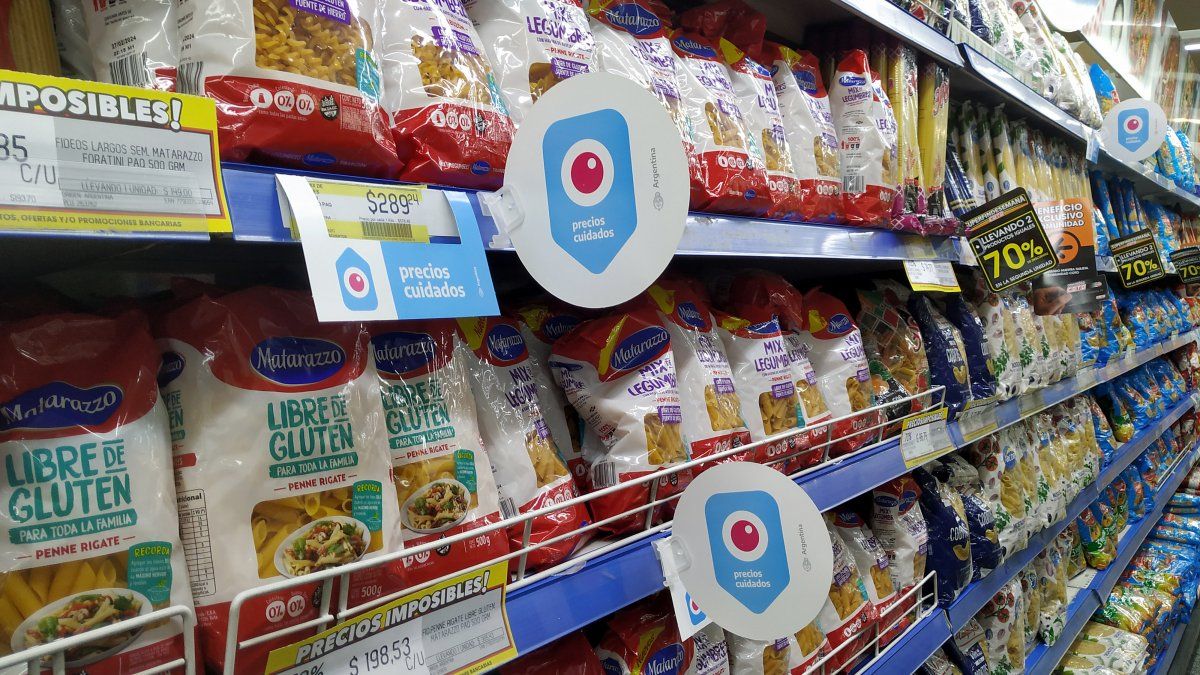When Paula Español took office in 2019, the first reports on the supply of Care Prices amounted to 80%, which was considered “usual”, because they assured that the supply of any product in supermarkets is usually due to rotation. With the arrival of Roberto Feletti, the list of products doubled, and even came to represent up to 20% of the turnover of supermarkets. In fact, a record number of products surveyed by the Indec was reached in the supermarkets belonging to the program.
With the arrival of Guillermo Hang, former Minister Martín Guzmán’s man, the supply began to dwindle, according to private sector sources. Today the supply is at an average 50%, that is to say that 1 out of 2 products are not found on supermarket shelves. Anyway, if instead of the average weighted by weight of products with higher turnover, the percentage would be even lower. Therefore, the weight of the billing of Care Prices in supermarkets today does not reach two digits, below 10%, according to the company.
In the meeting they held with Scioli, the supermarkets transferred the lack of supply to the suppliers. They consider that one of the reasons has to do with prices: In local shops, stores, self-service stores and Chinese supermarkets, manufacturers can sell at 40% higher prices, on average. As the increases enabled for Care Prices so far this year are half that of food inflation, in the private sector they consider that what was not adjusted by price, “was adjusted by quantity.”
Despite this gap in prices, they consider that with Feletti the supply was fulfilled during the first months of his administration, either to avoid “escraches”, as happened in March when he indicated in a press conference the increases of each brand, or for fear of “accusations”, a tool that the Ministry of Commerce was on the verge of applying, in the midst of uncertainty when the war broke out in Ukraine, and after the remark when President Alberto Fernández spoke of the “war against inflation” .
This situation motivated Costa, Axel Kicillof’s right-hand man in the province of Buenos Aires, to order reports on the fulfillment of the program in Buenos Aires. There, it was verified that most of the other 7 supermarket chains (except Vea) complied with the price agreed on the list, and also 7 had the correct signage (except Día). Meanwhile, in terms of supply, they detected problems in 5 of the 8 chains surveyed (Carrefour, Changomás, Día, Vea and Vital). The shortages were widespread in food, beverages, personal hygiene and cleanliness. This week they will have an update on the survey.
Meanwhile, last week Care Prices was renewed, but it is still open: there is still no dairy in supermarkets as part of the program. This happened due to the lack of agreement on the percentage increase, but above all because in the middle of the negotiation Hang resigned and the fourth secretary, Martín Pollera, trusted by the Minister of Economy, Silvina Batakis, took over. The number of products on the listing fell from more than 1,300 to 949. One of the reasons was the lack of supply: in some cases, it was 20%, although they clarified that it occurred in less consumed products.
With Hang, it had been conveyed to the dairy sector that there was going to be a larger pattern of increase, because that was where there were the biggest delays. For the complete list of Care Prices, the enabled increase was 9.3% average quarterly. Nevertheless, the change of management did not admit it, which hindered the negotiation for a week, especially in the case of milk. There the increase could be 12% quarterly, less than what was requested by the business sector, and could close in the next few hours.
Source: Ambito
David William is a talented author who has made a name for himself in the world of writing. He is a professional author who writes on a wide range of topics, from general interest to opinion news. David is currently working as a writer at 24 hours worlds where he brings his unique perspective and in-depth research to his articles, making them both informative and engaging.




